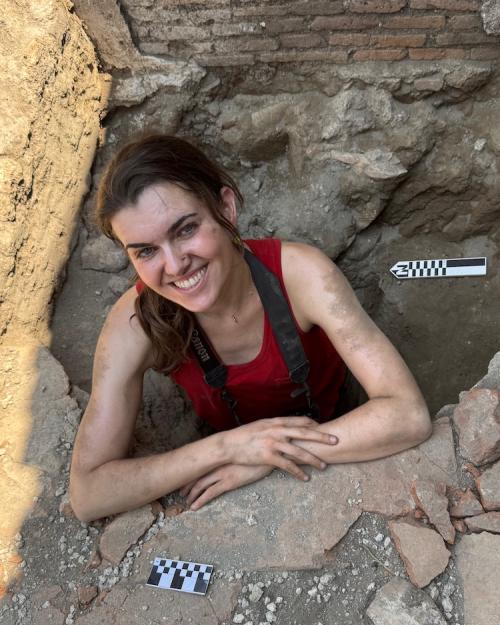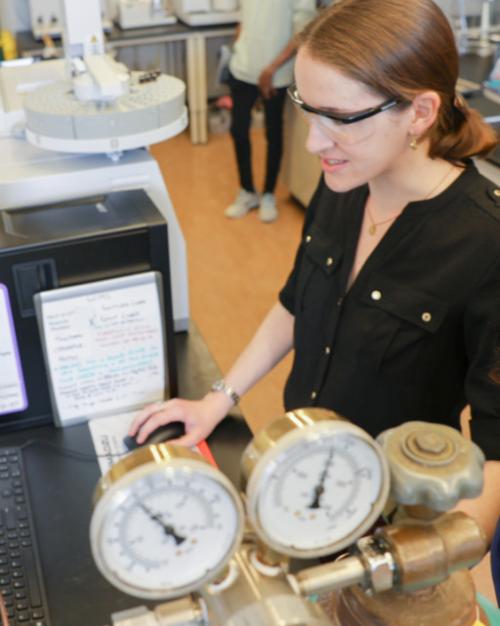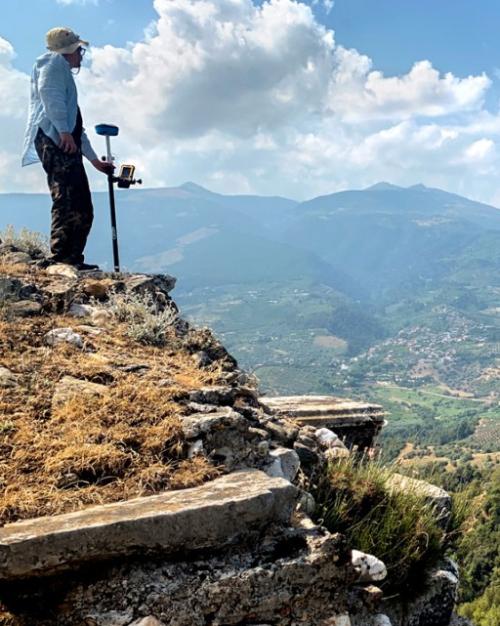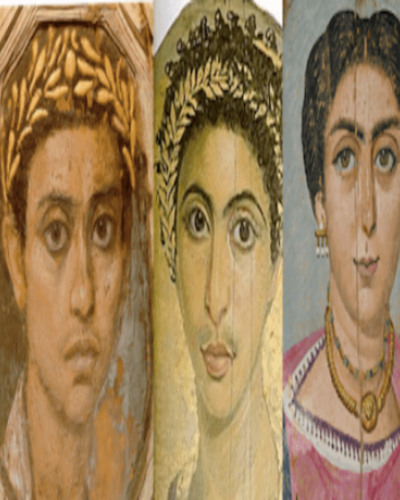Two Cornell Classics PhD students, Charlotte Hunt (Philology & Literature) and Isaac Hoffman (Philology & Literature), recently presented at a new conference dedicated to issues of equality and inclusivity in Classics. The conference, Our Voices: A Conference for Inclusive Classics Pedagogy, was hosted by Columbia University on February 15-16, 2020.
The goal of Our Voices was to provide a forum for educators and scholars at the primary, secondary, and post-secondary levels to discuss problems within Latin pedagogy, as well as within the field of Classics more broadly, and to share their experiences and ideas for dealing with those problems. The schedule included presentations of scholarship, as well as a variety of workshops, lightning talks, and panels covering topics which ranged from diversity and social justice in Classics to methods of language assessment and the use of conversational Latin in the classroom.
Charlotte, who was nominated to speak at the panel “Innovative Pedagogy in the College Classroom”, gave a talk entitled “Teaching Difficult Topics as a Classics Graduate Student,” in which she discussed some of the problems which graduate teaching assistants face when handling difficult topics in their classrooms and offered advice on “mitigating these problems while balancing a graduate student’s intermediate role between professor and undergraduate.” On her choice of topic for the talk, Charlotte commented, “I decided to address a particular problem that I have been struggling with since my MA - how I can help make Classics a diversified, decolonised, inclusive field (as it should be), at least within my own classroom.”
Isaac participated in the panel “Voice and Power” and presented a paper entitled “The Power of the Child-Bearer in Aeschylus’ Agamemnon.” His paper dealt with cycles of masculine anxiety and violence in the Agamemnon as well as Hesiod’s Theogony, arguing that “the fear of children overthrowing their fathers catalyzes misogynistic violence and victim-blaming such that the woman as child-bearer becomes the justification for her own demise.”
When asked about highlights of the conference, Isaac praised “the relaxed atmosphere combined with serious discussions and talks about social justice in pedagogy.” He added, “It felt like a conference without the hierarchy of academia that can so often stifle a lot of the discussion from those classicists perceived to be at the bottom of the ranks, like undergrads and high schoolers.” Charlotte expressed her excitement about the “many amazing ideas” she heard, but noted that she was especially impressed by the panel “Exploring Dimensions of Disability in the Classics Classroom.” She said, “As a disabled Classicist, I am all too personally aware of the struggles with accessibility in school and in the academy. It meant so much to me personally to hear from these brave scholars about their ideas on how to make Classics accessible and integrated.”
The Our Voices organizers have plans to make it an annual event. In the meantime, Charlotte looks forward to sharing ideas from the conference with her fellow Cornell students, in particular via the newly formed graduate organization Diversitas: The Classics Graduate Student Diversity Group. She said, “I am especially excited to see what we can do with these ideas here at Cornell.”
More information on the Our Voices conference can be found at https://ourvoicesinclassics.com/.





